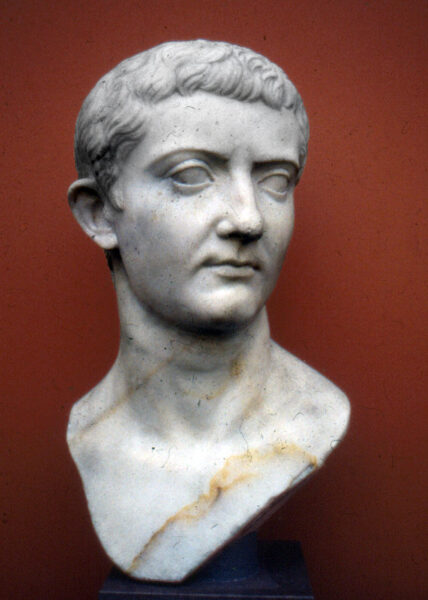Andrew Doyle considers how the reputation of Emperor Tiberius was shaped (and blackened) by later historians:
I am at the home of a psychopath. Here on the easternmost point of the island of Capri, the ancient ruins of the Villa Jovis still cling to the summit of the mountain. This was the former residence of the Emperor Tiberius, who retired here for the last decade of his life in order to indulge in what Milton described as “his horrid lusts”. He conducted wild orgies for his nymphs and catamites. He forced children to swim between his thighs, calling them his “little fish”. He raped two brothers and broke their legs when they complained. He threw countless individuals to their deaths from a precipice looming high over the sea.
That these stories are unlikely to be true is beside the point; Tiberius’s reputation has done wonders for the tourist trade here on Capri. The historians Suetonius and Tacitus started the rumours and, with the help of successive generations of sensationalists, established a tradition that was to persist for almost two millennia.
All of which serves as a reminder that reputations can be constructed and sustained on the flimsiest of foundations. Suetonius and Tacitus were writing almost a century after the emperor’s death, and many of their lurid stories were doubtless echoes of those circulated by his most spiteful enemies. Or perhaps it’s simply a matter of prurience. Who can deny that the more lascivious and outlandish acts of the Roman emperors are by far the most memorable? One thinks immediately of Caligula having sex with his siblings and appointing his horse as consul. Or Nero murdering his own mother, and taking a castrated slave for his bride, naming him after the wife he had kicked to death. For all their horror, who doesn’t feel cheated when such tales turn out to be false?
Our reputations are changelings: protean shades of other people’s imaginations. More often than not, they are birthed from a combination of uninformed prejudice and wishful thinking. And we should be in no doubt that in our online age, when lies are disseminated at lightning speed and casual defamation has become the activist’s principal strategy, reputations are harder to heal once tarnished.
I am tempted to feel pity for future historians. Quite how they will be expected to wade through endless reams of emails, texts, and other digital materials — an infinitude of conflicting narratives and individual “truths” — really is beyond me. At least when there is a dearth of primary sources it is possible to piggyback onto a firm conclusion. “Suetonius said” has a satisfactory and definitive air, but only because there are so few of his contemporary voices available to contradict him.




